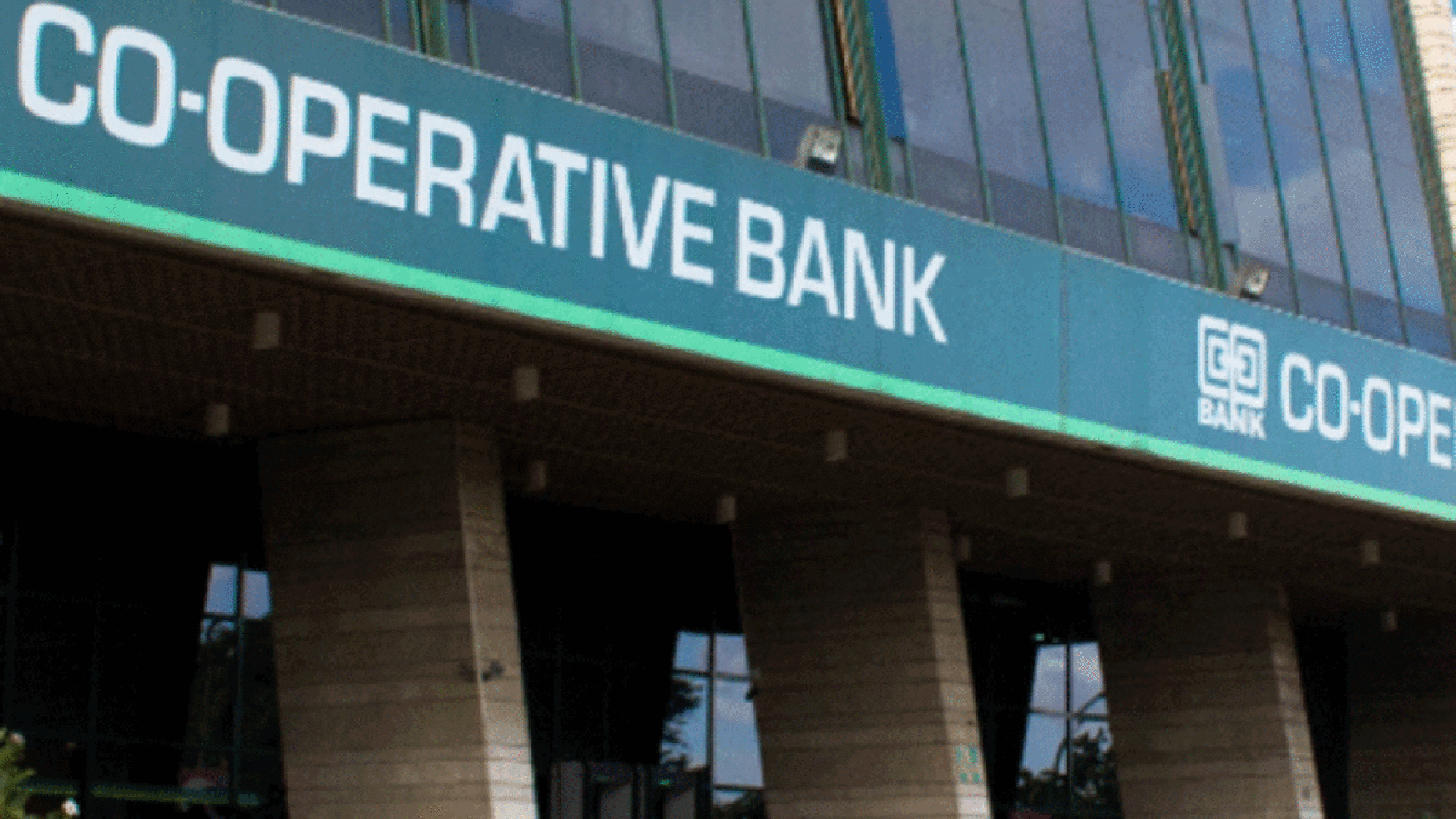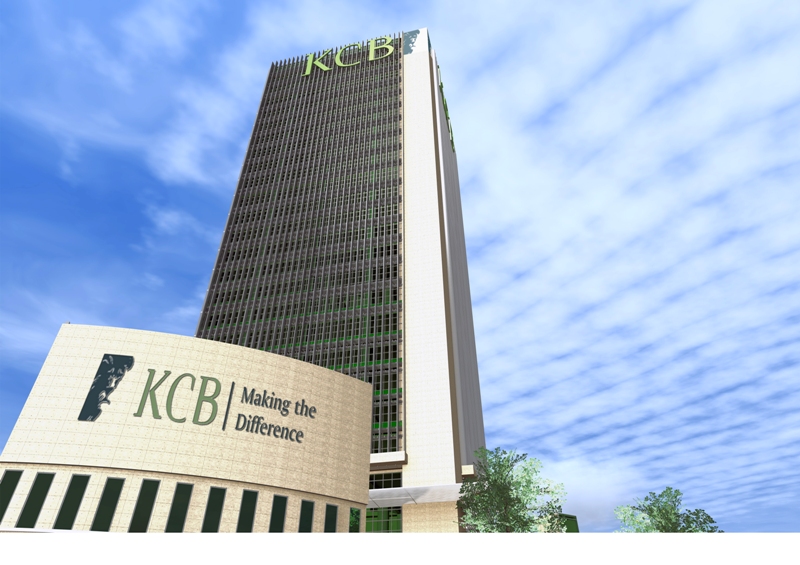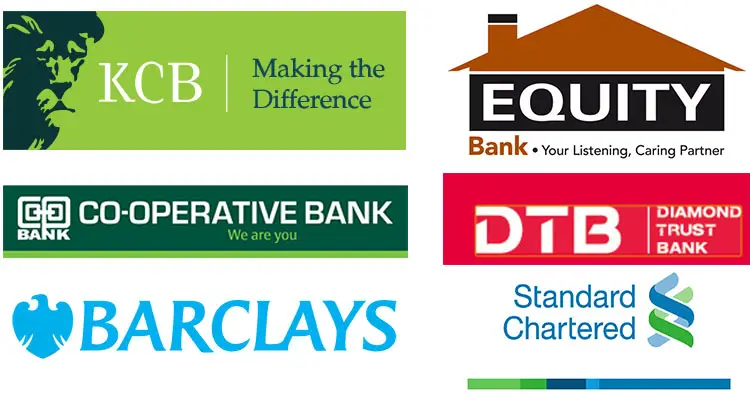Business & Money
Co-op Bank Leads Q3 2022 with Highest Net Profit Growth in Kenya

: Co-op Bank Leads with 47% Profit Growth in 2022, Followed by Equity Group and KCB as Kenya’s Top Banks Record Strong Performance
By Charles Wachira
In the nine months running to September 2022 Cooperative Bank of Kenya registered the biggest % in net profit growth followed by Equity Group Holdings PLC with Kenya Commercial Bank emerging third.
Co-op Bank as the Cooperative bank is widely known saw a 47 % growth as its net profit soared to Ksh 17 billion (US$138,979,724.30) from Ksh 11.6 Billion (US$ 94,833,223.64) recorded a year earlier.
“The performance delivers a competitive return on equity of 23 per cent to our shareholders… The strong performance by the bank is in line with the group’s strategic focus on sustainable growth, resilience and agility” said Co-op Bank chief executive Gideon Muriuki in a statement released Nov 17 during an investor briefing held in Nairobi.
During the period the bank’s cost to income ratio improved to 45.8 % compared to 49.3 % registered the previous year during the accounting period which also was an improvement to the 59 % chalked in 2014 when the lender embarked on its growth and efficiency strategy that is underlined by the digitization of services.
“Through our digital channel strategy, the bank has successfully moved 94 % of all customer transactions to alternative delivery channels, a 24-hour contact centre, mobile banking, 550 ATMs, Internet banking and a wide network of Co-op Kwa Jirani agents,” said Dr. Muriuki.
Co-op Bank, Kenya’s third-largest bank in asset size, saw its total assets grow by 5 % to Ksh 622.1 billion (US$ 5,089,365,262.40) compared to Ksh 592.9 billion (US$ 4,850,481,697.60) registered in the same period the previous year.
Meanwhile the net profit of Equity Group Holdings during the nine months period improved by 26.61% recording Ksh 33.35 billion (US$ 272,834,482.40) compared to Ksh 26.3 billion (US$ 215,158,827.20) a year earlier, largely helped by a surge in fees and commissions on banking transactions, forex trading and interest income from investments in government.
The group’s total income earned on fees and commissions grew by 28 % to Ksh 26.74 billion ($219.18 million) from Ksh20.79 billion ($170.4 million) while foreign exchange trading income increased by 57 % to Ksh 8.89 billion ($72.86 million) from Ksh 5.64 billion ($46.22 million).
While the Group’s earnings from its investments in government securities (Treasury bills and bonds) grew by 43 % to Ksh 29.57 billion ($242.37 million) from Ksh20.66 billion ($169.34 million) in the same period.
With total assets of the Group recording a 15.2% growth as customer deposits surpassed the Ksh 1.0 trillion mark for the first time since the bank’s founding. Loans and advances to customers grew by 21% to reach Ksh 673.9 billion (US$5,513,138,161.60)
The increase in Equity’s lending activity was largely driven by the Congolese unit, which recorded a 50% loan book growth to Ksh 151.6 Billion.
Equity Bank, which is the largest lender in the region in assets saw its earnings per share rise to Ksh 8.84(US$ 0.072) from Ksh 6.98 ( US$ 0.057) recorded in 2021 during the same period.
In an investor relations briefing held Nov 22 at its Nairobi Headquarters,Dr. James Mwangi , the CEO said, “Continuous pursuit of efficiency gains and our business transformation strategy has repositioned the business for value creation and strategic growth.|”
In the nine months period the net profit earnings of the KCB Group, which is Kenya’s second largest by assets, grew by 21.4 % mainly driven by growth in net interest and non-funded income, registering Ksh 30.6 billion (US$ 250,336,886.40) up from Ksh 25.2 billion (US$ 206,159,788.80 )the previous year.
“We are seeing strong revenue momentum across the corporate and retail business which positions us to meet our full year outlook. Our focus has been on delivering value and support to our customers to help them navigate the tough economic environment”, said KCB Group CEO Paul Russo 15th November during an investor relations briefing held on November 15 in Nairobi.
KCB Group’s balance sheet went up 13.7% with total assets now at Ksh 1.28 trillion largely driven by growth in loans, investment in government securities funded by growth in customer deposits and additional borrowings. Net loans and advances went up 16.4% to Ksh 758.8 billion (US$ 6,207,700,307.20) from additional lending to the personal, building & construction and manufacturing sectors.
Customer Deposits increased by 7.4% to Ksh 922.3 billion (US$ 7,545,284,651.20) on higher deposits from the growth of current and savings accounts.
“Our focus has been on delivering value and support to our customers to help them navigate the tough economic environment,” said Russo.
KCB Group has presence in six countries including a representative office in Ethiopia
According to the KCB Group Chairman Andrew Wambari Kairu, the lenders’ deliberate focus on cost management, enhanced digital capabilities and customer obsession, “ continues to give the business a springboard for further growth and to close the year stronger. We are optimistic of continued revenue growth across all our businesses, with projected GDP growth in all markets amidst currency depreciation and high inflation in most of the countries we operate in.”
Keywords:Co-op Bank profit growth 2022:Equity Group Holdings performance
KCB Group net profit increase:Kenya banking sector asset growth:CEO quotes investor briefings 2022
Business & Money
KCB Group Surpasses Equity with US$ 342.31 Million Nine-Month Profit

: KCB Group reports Sh44.5B ( US$ 342.31) nine-month profit, outpacing
Equity Bank. Learn about its 49% growth, challenges, and stock performance this
year.
KCB Group Plc has outperformed Equity Bank to cement its position as Kenya’s leading
lender, posting a net profit of Sh44.5 billion for the nine months ending September
This represents a 49% year-on-year growth, surpassing Equity Bank’s Sh37.5
billion profit during the same period.
Profit Growth Driven by Core Business Performance
The remarkable profit growth was fueled by higher earnings from both interest and non-
interest income streams. KCB’s diverse revenue base has been pivotal in maintaining
its dominance in the competitive banking sector.
Non-Performing Loans a Key Concern
Despite the impressive profit growth, KCB’s non-performing loan (NPL) ratio rose to
18.5%, compared to 16.5% last year. This increase highlights persistent challenges in
managing credit risk, with Chief Financial Officer Lawrence Kimathi acknowledging it as
a “pain point” for the bank.
KCB Stock Outshines Peers on NSE
KCB’s strong financial performance has translated into exceptional stock market results.
The bank’s stock has risen 78.8% year-to-date, making it the best-performing banking
stock on the Nairobi Securities Exchange (NSE).
Plans to Sell National Bank of Kenya
Earlier this year, KCB announced plans to sell its struggling subsidiary, National Bank of
Kenya (NBK), to Nigeria’s Access Bank. While Nigerian regulators have approved the
deal, it is still awaiting clearance from Kenya’s Central Bank. The sale aims to
streamline KCB’s operations and address losses at NBK.
CEO Paul Russo Optimistic About Year-End Performance
“The journey has not been without its hurdles, but our ability to walk alongside our
customers has driven our success,” said KCB CEO Paul Russo. He expressed
confidence in closing the year on a high note, leveraging improving economic conditions
across the region.
Key Figures at a Glance
● Net Profit: Sh44.5 billion (+49%)
● Non-Performing Loan Ratio: 18.5% (up from 16.5%)
● Stock Performance: +78.8% year-to-date
KCB’s strong performance underscores its resilience in navigating challenges and its
commitment to sustaining growth in Kenya’s banking sector.
Business & Money
Top 10 Kenyan banks by total assets as of 2023, based on data from the Central Bank of Kenya:

KCB Bank Kenya Limited
Total Assets: KSh 1.425 trillion
Market Share: 17.4%
Equity Bank Kenya Limited
Total Assets: KSh 1.004 trillion
Market Share: 12.2%
NCBA Bank Kenya PLC
Total Assets: KSh 661.7 billion
Market Share: 9.2%
Co-operative Bank of Kenya
Total Assets: KSh 624.3 billion
Market Share: 8.8%
Absa Bank Kenya PLC
Total Assets: KSh 520.3 billion
Market Share: 6.6%
Standard Chartered Bank Kenya
Total Assets: KSh 429.3 billion
Market Share: 5.9%
Stanbic Bank Kenya
Total Assets: KSh 449.6 billion
Market Share: 5.8%
I&M Bank Limited
Total Assets: KSh 405.6 billion
Market Share: 5.4%
Diamond Trust Bank Kenya
Total Assets: KSh 399.6 billion
Market Share: 5.3%
Bank of Baroda (Kenya) Limited
Total Assets: KSh 201.9 billion
Market Share: 2.8%
These rankings illustrate the dominance of large Tier 1 banks, which collectively control over
76% of the market share. Strategic expansions, increased deposit mobilisation, and robust
lending practices underpin the sector’s strong performance
Business & Money
Vasundhara Oswal’s Legal Struggles and Family’s Plea for Justice

: Vasundhara Oswal, daughter of industrialist Pankaj Oswal, faces serious
charges in Uganda. The Oswals call for UN intervention amid claims of corporate
jealousy.
Vasundhara Oswal, the 26-year-old daughter of prominent Swiss-Indian industrialist
Pankaj Oswal, has found herself at the centre of a legal storm in Uganda.
Her father, a well-established business figure, is known for his diverse investments,
most notably a $150 million ethanol plant in Uganda.
This plant, the largest of its kind in East Africa, is a key part of Oswal’s broader strategy
to invest in industrial and eco-friendly solutions in the region. The facility produces extra-neutral alcohol (ENA), which is used in the beverage, cosmetics, and pharmaceutical industries.
It is recognised for its modern technology and sustainable practices, such as zero liquid
discharge, emphasising the Oswal family’s commitment to both industrial growth and
environmental responsibility.
In addition to the ethanol plant, Pankaj Oswal has made strategic investments across
various industries, including petrochemicals, agriculture, and real estate.
His ventures reflect a global reach, extending to Australia and India, where he has
been involved in industries ranging from agriculture to renewable energy.
His diversified business approach and commitment to sustainability have made him a prominent figure in international business. However, in October 2024, the family’s legacy was overshadowed by the legal troubles surrounding Vasundhara Oswal.
She was detained on October 1, 2024, after being accused of involvement in the
alleged murder of Mukesh Menaria, a former employee who had worked with the
Oswals since 2017.
Menaria had accused the family of harassment but later testified under oath that they
had not harmed him Despite this, charges of kidnapping and murder were brought against Vasundhara.
Her family has strongly denied these allegations, claiming that the charges are
politically motivated and part of a larger conspiracy orchestrated by their business rivals
in collaboration with corrupt officials in Uganda.
The Oswals have appealed to the United Nations, seeking intervention and asserting
that the legal proceedings against Vasundhara are unlawful. Vasundhara has actively managed the family business throughout her career, especially the ethanol plant, and led the company’s sustainable initiatives.
Beyond her business involvement, she has also been an advocate for community
welfare and mental health, further cementing the Oswal family’s reputation for corporate
social responsibility.
The unfolding legal drama has raised important questions about the intersection of
business, politics, and the legal systems in Uganda.
While the Oswal family’s ventures reflect a blend of industrial innovation and social
responsibility, the legal challenges Vasundhara faces have cast a shadow over their
business empire, highlighting the complex dynamics at play in East Africa.
-

 Business & Money8 months ago
Business & Money8 months agoEquity Group Announces Kshs 15.1 Billion Dividend Amid Strong Performance
-

 Politics3 months ago
Politics3 months agoFred Okengo Matiang’i vs. President William Ruto: A 2027 Election Showdown
-

 Politics2 months ago
Politics2 months agoIchung’wah Faces Mt. Kenya Backlash Over Gachagua Impeachment Support
-

 Politics4 months ago
Politics4 months agoPresident Ruto’s Bold Cabinet Dismissal Sparks Hope for Change
-

 Politics5 months ago
Politics5 months agoKenya Grapples with Investor Confidence Crisis Amid Tax Protest Fallout
-

 Politics5 months ago
Politics5 months agoPresident Ruto’s Lavish Spending Amid Kenya’s Economic Struggles Sparks Outrage
-

 Politics4 months ago
Politics4 months agoJohn Mbadi Takes Over Kenya’s Treasury: Challenges Ahead
-

 Business & Money1 week ago
Business & Money1 week agoMeet Kariuki Ngari: Standard Chartered Bank’s new CEO of Africa. What’s Next?





